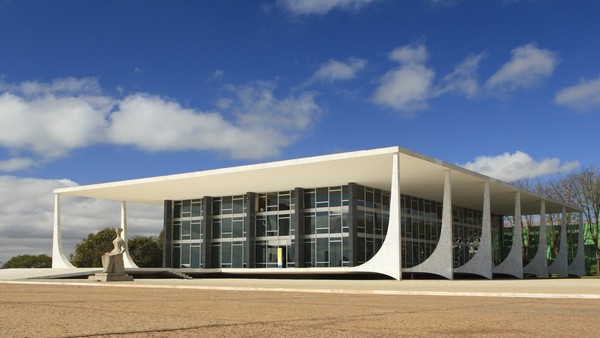
A decision by Brazil’s Supreme Court could prove as decisive as the country’s sweeping corruption investigations in curbing impunity in Latin America’s largest country, proponents claim.
The ruling this month by Brazil’s highest court ordered that a worker, who had already been convicted by a court for robbery and again on appeal, should begin serving a five-year jail sentence while awaiting the results of a further appeal to Brazil’s higher courts.
The decision sets an important precedent by closing a loophole in which convicted criminals are allowed to remain free until they have exhausted every avenue of appeal, including in the country’s higher constitutional courts. Skilled defence lawyers are able to draw out the process in the overburdened higher courts for so long that many convicted criminals can go free for decades pending appeal before serving time.
“The decision by the Supreme Court closes one of the windows for impunity in the Brazilian penal code,” said federal judge Sérgio Moro, a lower court justice responsible for trying many of those suspected in the Petrobras case, Brazil’s biggest corruption investigation.
One of the world’s most unequal societies, Brazil’s penal system is known for providing loopholes allowing those who can afford good lawyers to obtain more lenient treatment.
Until the Petrobras case, in which former executives of the state-owned oil company are accused of collaborating with contractors and politicians to extract kickbacks, it was rare for the rich and powerful to serve prison time.
In one case, a senior journalist of the Estado de S. Paulo newspaper, Antonio Pimenta Neves, shot dead his ex-girlfriend, and confessed to the crime but through the courts of appeal was still able to delay his eventual imprisonment for more than 10 years.
Brazil’s upper courts, including the Supreme Court, have been deluged with tens of thousands of ordinary cases, swamping their higher function as the ultimate interpreters of the constitution. With limited manpower — the Supreme Court has only 11 judges and the Superior Court of Justice only 33 — the backlog of cases has become chronic.
The decision by the Supreme Court closes one of the windows for impunity in the Brazilian penal code– Sérgio Moro, federal judge
Analysts say some of the suspects involved in the Petrobras case, known as Lava Jato, may until this month have been hoping for a rapid conviction from Judge Moro, who has made a name for himself for his no-nonsense and efficient rulings. Once convicted by Judge Moro, they might then have been hoping to go free pending appeal to the upper courts while their lawyers dragged out their cases for years.
In the Supreme Court decision this month, a plenary session of judges voted 7-4 in favour of allowing the imprisonment of suspects after their conviction in a court of second instance.
“The maintenance of the criminal sentence at the second instance signals the conclusion of the analysis of the facts and proof that confirm the guilt of the convicted person, enabling the beginning of serving of the sentence,” Teori Zavascki, the Supreme Court judge leading this month’s decision, said in a statement.
However, the decision has drawn criticism from legal experts, who say it contravenes the country’s 1988 constitution, which they argue guarantees the presumption of innocence until the last appeal is exhausted.
Oscar Vilhena, dean of FGV Direito SP, a law school, said the decision brought Brazilin line with international practice in other democracies, in which a convicted person is normally jailed after losing in the second instance. But he objected to the ruling on “technical” grounds. Any change of this nature should have been done through an amendment to the constitution, he said, not by the Supreme Court.
As a citizen I am happy, as a jurist I really think it was an inadequate decision– Oscar Vilhena, dean of FGV Direito SP, a law school
“Substantively, it is good that Brazil has a more efficient judicial system that can enforce most of its decisions at the second level,” Mr Vilhena said. “But my problem is technical, whether this should have been done by the Supreme Court . . . as a citizen I am happy, as a jurist I really think it was an inadequate decision.”
Other critics said Brazil needed to improve its judicial system rather than reduce the constitutional “guarantees” for its citizens. Marco Aurélio Pinto Florêncio Filho, criminal law professor at Mackenzie Presbyterian University in São Paulo, said of all cases, 25 per cent of suspects were acquitted on appeal to the upper courts.
“The debate today is not about impunity — the elimination of impunity can only be resolved through more efficient judgments not by restricting [civil rights] guarantees,” he said.